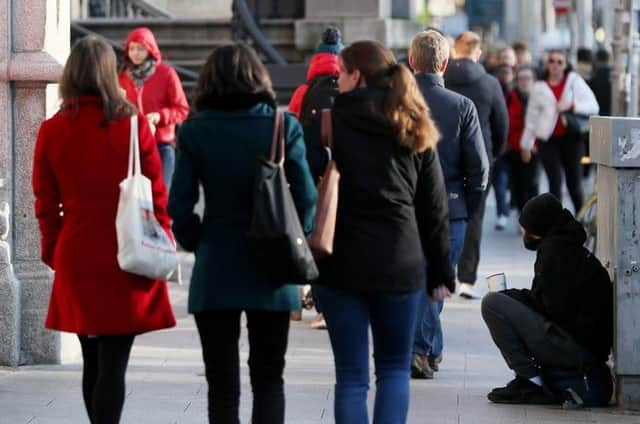Beggars and rough sleepers brought to court hundreds of times in Northumbria


Homelessness charity Crisis says the “cruel” Vagrancy Act – which Housing Secretary Robert Jenrick six months ago said should be abolished – drives vulnerable people away from support and can keep them on the streets for longer.
The law, created in the early 1800s, sees anyone prosecuted under the Vagrancy Act facing a fine of up to £1,000 and a criminal record.
Advertisement
Hide AdAdvertisement
Hide AdFigures obtained through a Freedom of Information request by RADAR reveal that between the April of 2015 and December last year, Northumbria Police made 329 charges which resulted in court hearings, using the act's two most commonly-used sections.
Around three-quarters were for begging (section 3 breaches), with the remainder for rough sleeping or being in an enclosed space without permission (section 4).
The Crown Prosecution Service, which provided the figures, said the coronavirus pandemic had impacted the volume of cases dealt with by courts across England and Wales last spring.
But despite this, there were still 11 Vagrancy Act court cases in Northumbria between April and December last year – the latest figures provided.
Advertisement
Hide AdAdvertisement
Hide AdHousing Secretary Robert Jenrick told the House of Commons in February that the act should be "consigned to history".
Crisis chief executive Jon Sparkes said the charity was encouraged by Mr Jenrick's comments, but is disappointed that the “offensive and counterproductive law” remains in place to this day.
He said: “We all agree that the cruel, unnecessary Vagrancy Act should be scrapped but it’s still being used week in, week out with devastating consequences.”
“Fining people who already have next to nothing is pointless and just drives people further away from support, often keeping them on the streets for longer.”
Advertisement
Hide AdAdvertisement
Hide AdThe CPS figures show there were 11,700 court hearings due to Vagrancy Act section 3 and 4 breaches across England and Wales between April 2015 and December 2020 – 700 of which took place in the nine months to the end of last year.
Mike Amesbury, shadow housing minister, said the "outdated" legislation criminalises people who have lost their home.
"Stable and secure housing underpins opportunities, saving lives and livelihoods," he added.
"It’s in everyone’s interests that ministers focus on ending homelessness through support, prevention and stronger legislation to protect renters."
Advertisement
Hide AdAdvertisement
Hide AdA Ministry of Housing, Communities and Local Government spokesperson said: “The Government is clear that no one should be criminalised simply for having nowhere to live and the time has come to reconsider the Vagrancy Act.
“Work is ongoing to look at this complex issue and it is important that we look carefully at all options. We will update on our findings in due course.”